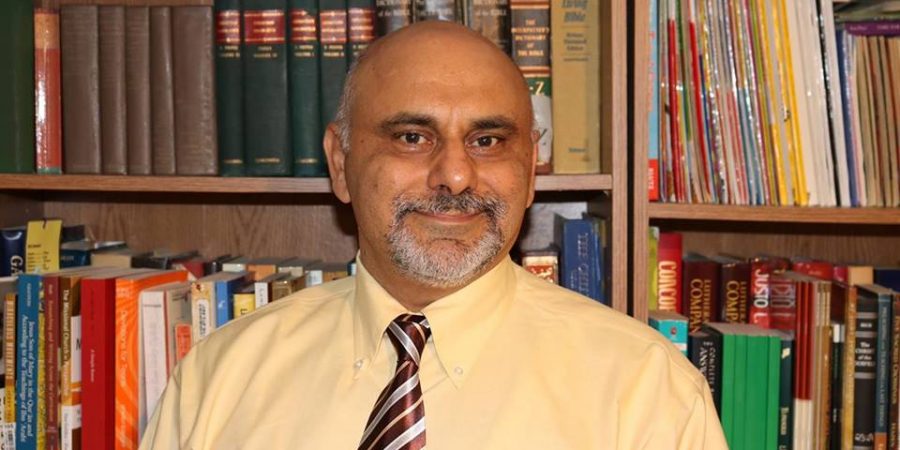"reforming the mind-set of Muslims and their views towards different faiths could be possible."
Opinion: A Long Way before Muslims Believe in Religious Liberty

Muslims have a long way to go before they believe in religious liberty the way Christians do because Muhammad, the prophet of Islam, is their example in life; Islam is a culture of shame; and there is an Islamic consensus on punishing blasphemers.
On November 21, 2018, Christianity Today (CT) posted a podcast under the title “Do Muslims Understand Religious Liberty the Same Way Christians Do?” In order to discuss that issue, CT interviewed Dr. Jennifer Bryson, a religious liberty scholar and former director of the Islam and Religious Freedom Action Team at the Religious Freedom Institute.
Bryson told the CT editorial board members that the freedom to change religion in the Islamic World is “controversial”; and that while there is nothing in the Quran that sanctions the death penalty for an apostate, the Quran does state that there will be punishment in the hereafter. While that is true about the position of the Quran, it is not true about the position of Muhammad, the prophet of Islam, who is the highest authority in interpreting the Quran.
The death penalty for an apostate in Sharia law is based on an authentic hadith (statement) of the prophet of Islam: “Whoever changes his religion, execute him.” (Narrated by al-Bukhari, 2794). What is meant here by “religion” is Islam. Thus, the command is to be applied to whoever changes from Islam to another religion.
Even though the Quran states in chapter 2: 256 that there is no compulsion in religion, the Quranic verse is understood only as a command against forcing non-Muslims to convert to Islam. It is not understood to be permission for Muslims to leave Islam.
Furthermore, Muhammad’s biography and actions confirm that the death penalty should be meted to apostates and others who criticize the Islamic faith and do not recant.
Authoritative sources for the life of Muhammad narrate that when he conquered his hometown, Mecca, in 632 A.D., the prophet of Islam instructed his commanders to fight only those who resisted them. The exception was a small number who were to be killed solely because they had apostatized or had criticized Islam, even if they were found beneath the curtains of the Kaaba.
In addition, Sharia law, which is based mainly on the Quran and the Hadith, describes different kinds of apostasy and blasphemy. Some offenses are punishable by execution but others are not.
The oldest Saudi website on Islamic verdicts (Islam Question and Answer https://islamqa.info) defines “apostasy” as when a Muslim becomes a disbeliever by saying a clear statement to that effect, or by uttering words which imply that, or he/ she does something that implies that.
The matters which constitute apostasy are divided into four categories:
1. Apostasy in beliefs, such as associating others with Allah, denying Him, or denying an attribute which is proven to be one of His attributes, or by affirming that Allah has a son.
2. Apostasy in words, such as insulting Allah or the Messenger (Muhammad).
3. Apostasy in actions, such as throwing the Quran into a filthy place, because doing that shows disrespect towards the words of Allah. Consequently, it is a sign that one does not believe.
4. Apostasy by omission, such as not doing any of the rituals of Islam, or turning away from following it altogether.
The website adds that if a Muslim apostatizes and meets the conditions of apostasy – i.e., he is of sound mind, an adult and does that of his own free will – then his blood may be shed with impunity. He is to be executed by the Muslim ruler or by his deputy – such as a judge.
What took place in 7th century Arabia was formative to the religion and culture of Islam. Nowadays, the Organization of Islamic Cooperation (OIC) which represents fifty-seven Islamic countries has been pushing the United Nations for a decade for a United Nations resolution that makes insults against religions an international criminal offence.
In 2012, Reuters reported that the Human Rights Commission of the OIC said “growing intolerance towards Muslims” had to be checked and called for “an international code of conduct for media and social media to disallow the dissemination of incitement material.” (https://www.reuters.com/article/us-protests-religions-blasphemy/islamic-states-to-reopen-quest-for-global-blasphemy-law-idUSBRE88I1EG20120919)
Ekmeleddin Ihsanoglu, secretary-general of the OIC, said the international community should “come out of hiding from behind the excuse of freedom of expression”, a reference to Western arguments against a universal blasphemy law that the OIC has sought for more than a decade.
Ironically, on November 20, one day before CT posted the podcast, Pakistani Prime Minister Imran Khan delivered a speech on the day of the Prophet Muhammad’s birthday. He said that other prophets of Allah were not as significant as Muhammad, and that there is “no mention of Jesus in history.” He said that the West should be made to understand Muslims’ love for Muhammad and that freedom of speech is not a legitimate pretext to hurt someone’s religion. Khan also announced that his government is spearheading efforts to get countries to sign on to the “International Convention on Preventing the Defamation of Religions,” which would state that freedom of speech is an insufficient pretext for hurting the world’s Muslims. (https://www.memri.org/tv/pakistani-pm-imran-khan-no-mention-jesus-history-anti-free-speech-love-muhammad/transcript)
Islam is a culture of shame in which people do their best to conform to the accepted norms, irrespective of their personal convictions. That makes it easy for Islamic leaders to rally the masses against a so-called blasphemy or apostasy case.
Take for example the case of the Danish cartoons. The so-called Muhammad Cartoon Crisis of 2005 and 2006 exploded after Danish newspaper Jyllands-Posten published a dozen cartoons under the headline “The Face of Muhammad.”
Hundreds of thousands of people protested the cartoons, leaving nearly 250 dead and 800 or so wounded. While churches had nothing to do with the cartoons, many churches were burned in Muslim-majority countries. This included churches in Lebanon which enjoys more freedom, where Christians are not a minority, and a Catholic Christian is the commander-in-chief.
A second case in point is that of Asia Bibi, a Christian who was accused of blasphemy in Pakistan and jailed for eight years. The mother of five was convicted in 2010 for insulting Islam’s Prophet Muhammad during an argument and was on death row while appealing the case.
Early this month, the Pakistani Supreme Court ruling to release Asia Bibi sparked violent protests from Islamists, and the government agreed to their demand to prevent Bibi from leaving Pakistan.
According to the British Broadcasting Corporation (BBC), Asia Bibi’s husband had told reporters that they were in danger and pleaded for asylum. But a number of Western countries have so far refrained from granting them asylum in fear of an outrage among their Islamic communities.
On the other hand, in her statements to Christianity Today, Jennifer Bryson cited an article written by Ismail Royer on Pakistan’s blasphemy law, claiming that it goes to British colonial times, and that it is not based on any Islamic ordinance. A reading of the Royer article would show that the British had enforced that ordinance in order to keep the peace among the different sects in India, the subcontinent which then included not only Pakistan and Bangladesh, but also a majority of Hindus. In addition, the British ordinance stated that any offence against a sacred object or person was punishable by two years in prison and/ or a fine, but did not mention execution.
Certainly, not all Muslims would believe the same thing about Sharia law regarding apostasy and other aspects of traditional Islam. However, as long as the Islamic culture shames those who have different voices, honesty about faith would remain unacceptable, contrary to what Bryson said in the podcast.
However, some Muslim scholars and academics in the Middle East and South East Asia have dared to challenge traditional Islamic culture, but they have been subjected to an inquisition by Islamic authorities. Their lot have been removal from their college or seminary positions, tortured, or sent to jail or to exile.
A case in point was the late Nasr Hamid Abu Zaid (July 10, 1943 – July 5, 2010) was an Egyptian Qur’anic thinker, author, academic and one of the leading liberal theologians in Islam. He was famous for his project of a humanistic Qur’anic hermeneutics, which “challenged mainstream views” on the Qur’an sparking “controversy and debate. In 1995 an Egyptian Sharia court declared him an apostate, this led to threats of death and his fleeing Egypt several weeks later to the Netherlands.
What about Muslims who live in the West? Do they believe in religious freedom?
According to the experience of this author, Muslims’ position on liberty of faith in the West could be divided into three categories.
1. Muslims who virtually live outside the Islamic communities and do not interact with Islamic institutions. Sometimes they are called secular Muslims. Some of those are second or third generation immigrants.
2. Muslim immigrants who are engaged in the activities of Islamic centers and have transferred the culture of their countries of origin into America. Those are the majority of Muslims.
3. Islamists who have formed pressure groups and are pushing for building Islamic communities that would be like those in their countries of origin, or even communities that are more radical than their countries of origin.
While the first category of Muslims practices no activism and is usually ineffective in the political Islamic arena in the West, the last two are influential and usually practice social exclusion against any Muslim who may have liberal religious views or converts to another religion. Examples of those Islamists are the Council on American Islamic Relations (CAIR), American Muslims for Palestine, Islamic Society of North America (ISNA), and other Islamist organizations and mosques that promote radical Islamic ideologies and work against progressive ideas in Islamic communities in the West. Those organizations act as watchdogs against any criticism of the Islamic metanarrative that holds back Muslims from embracing religious liberty in the West.
However, in the first decade of the 21st century, more Muslims left Islam than 1400 years of Islamic history, but had to pay a heavy price. Some have taken refuge in the West and are vocal on social media, but cannot go in public without police protection; like Hamed Abdul Samed. Others converted to Christianity and are under death threats from family and past friends.
This author, a convert from Islam, escaped with the skin of his teeth when he visited his country of origin Lebanon in 2010. Two of his cousins planned an ambush to kill him in order to cleanse the family honor of shame.
However, in the age of social media, reforming the mind-set of Muslims and their views towards different faiths could be possible. But, that would require generations of reformers who would have the courage to face the established traditional Islamic culture and foster values of liberty and democracy in the Islamic World. Maybe then Muslims could believe in religious liberty the way Christians do.
Hesham Shehab

Hesham Shehab
Adjunct Faculty at College of DuPage, Formerly Adjunct Faculty at American University of Beirut and Pastor at Peace Lutheran Church Lombard, IL Name pronounciation: HI-shahm SHI-hab Hebrews 12: 4 & Philippians 1: 29




Comments are Closed